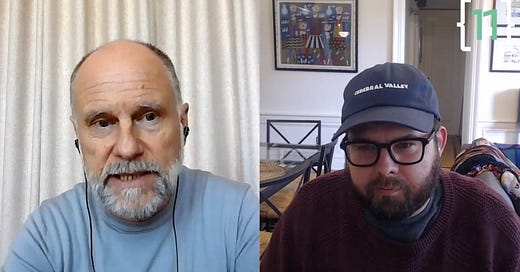Union Square Ventures partner Albert Wenger has been successful enough to write a techno-manifesto.
Wenger made early investments in companies like Twilio, MongoDB, and Etsy.
Now, he’s spending much of his time on USV’s climate investing out of the firm’s $200 million climate fund.
Wenger has historically been a media recluse — but he’s started popping his head out.
So when I got the opportunity to talk to him on the Newcomer podcast, I jumped.
After all, Union Square Ventures has ranked 1st and then 2nd in the Founder’s Choice VC Rankings. And USV was among the first venture capital firms to privately raise the alarm to portfolio companies that they needed to protect against a banking crisis. So we had a lot to talk about.
Plus, Wenger is in the big ideas phase of his career.
“We live in a period where there is an extraordinary range of possible outcomes for humanity. They include the annihilation of humankind in a climate catastrophe, at one extreme, and the indefinite exploration of the universe, at the other,” he concludes in his book The World After Capital, which is available for free online.
Wenger has a strong point of view about where we’re headed: He argues that we’ve moved from the Industrial Age to the Knowledge Age and that we need to dramatically rethink society in light of that change.
Despite the book’s manifesto-like qualities, The World After Capital frames up some of the core issues of our time. In particular, he argues that financial markets cannot adequately price the ultimate scarce resource of our age — attention.
As artificial intelligence looks poised to further disrupt society, Wenger’s point of view is only becoming more compelling.
In our Newcomer podcast discussion, Wenger and I examine the current state of universal basic income. You can hear how we think differently about the issue. I’m eager to think about how it could realistically be implemented in the United States sometime soon; he’s interested in the broad sweep of history.
On the podcast, we talk about the banking system and I interrogate whether there’s any hypocrisy in opposing the 2008 bank bailouts and defending the government’s decision to backstop depositors at Silicon Valley Bank.
It was a fun conversation that looks beyond the day-to-day news cycle to some of the bigger questions that technological progress posses for our society.














Share this post